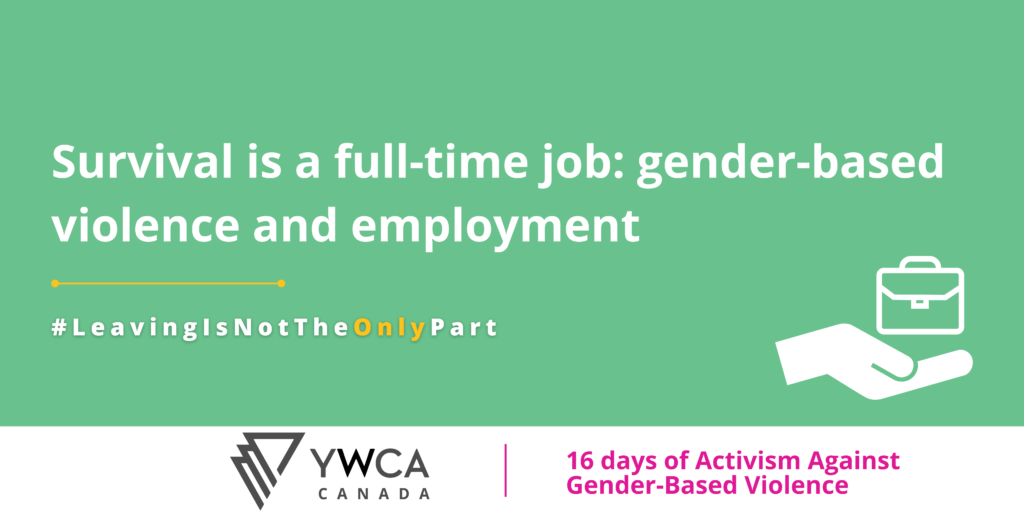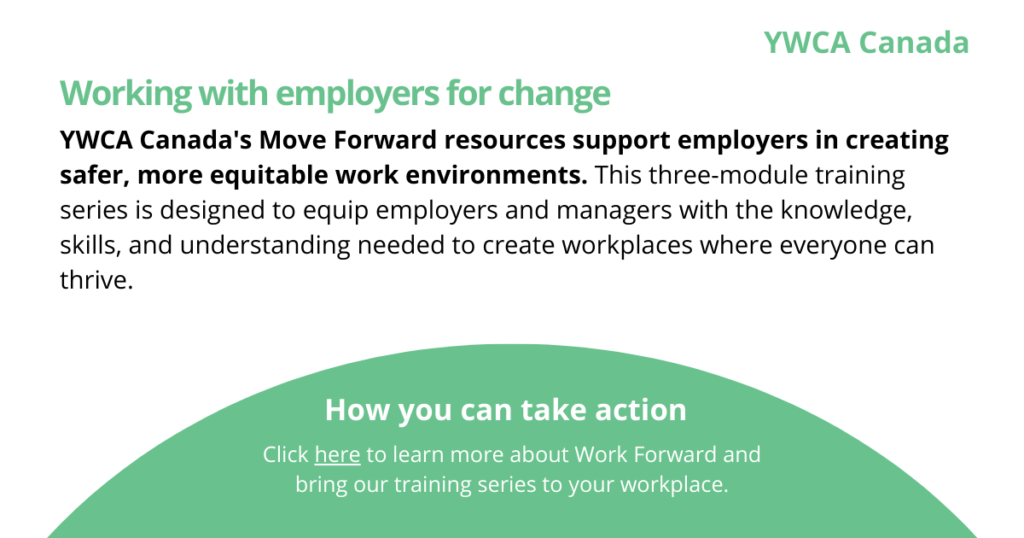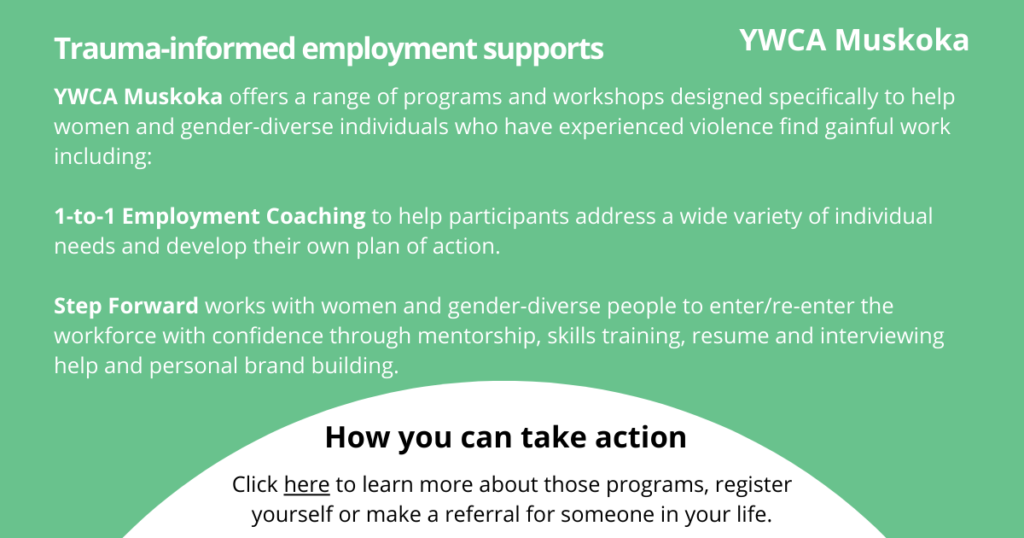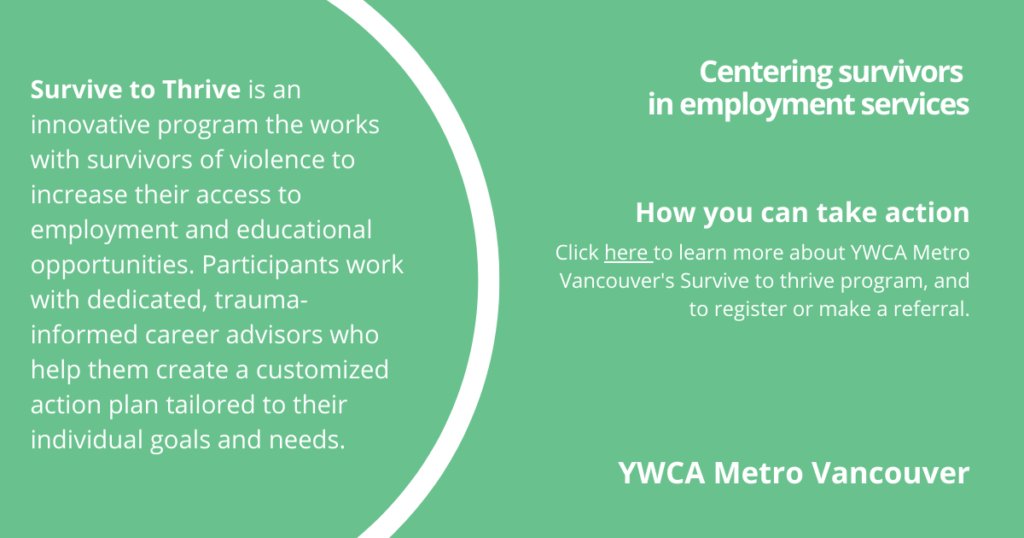At home and at work, gender-based violence seeps into every element of a survivor’s life, and employment is no exception. From finding and keeping work when experiencing or healing from GBV at home to facing violence, discrimination and harassment in the workplace, survivors’ careers and economic stability are dramatically impacted.
Finding & keeping work
Survivors are more likely to experience disruptions in their work history and may find themselves changing jobs more frequently, which makes finding gainful employment more difficult.
Once they have found employment,
When GBV happens at work
Gender-based violence in the workplace is a serious problem. It can include physical, sexual or psychological abuse, harassment and discrimination In Canada, one in four (28%) of workers have experienced sexual harassment at work or at a work function.
Trauma caused by gender-based violence in the workplace can have a profoundly negative impact on work performance, with decreased productivity and job security concerns. Mental health issues such as anxiety, social isolation, depression and post-traumatic stress disorder are common among those affected and can impair their ability to successfully fulfill their duties at work.
Gender-based violence and harassment are not only a problem for survivors, but they also have serious implications for employers. Beyond compromising workplace safety and reducing productivity and engagement, gender-based violence can result in costly direct and indirect losses to an employer. Research has estimated that Canadian employers lose an estimated $18.4 million due to sexual violence and $77.9 million due to intimate partner violence each year. These losses can include administrative costs, decreases in survivors’ productivity, potential liability for harm caused, and increased absenteeism and employee turnover.



